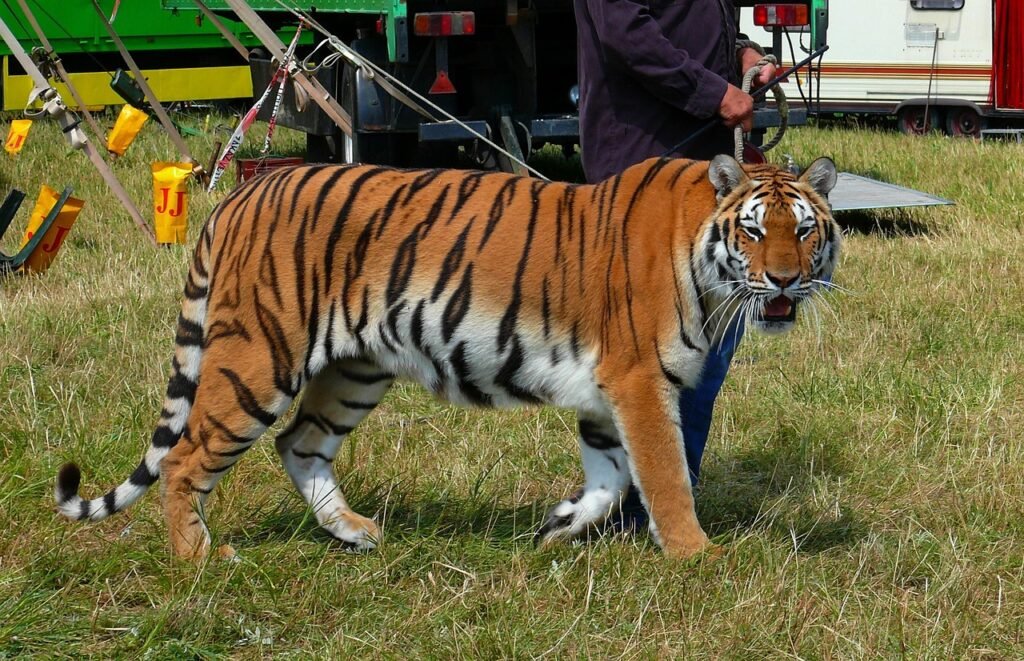Washington is on the verge of joining a growing national movement to protect wild animals from exploitation in circuses and other traveling acts. Senate Bill 5065, which bans the use of certain animals in traveling performances, has passed both chambers of the state legislature and is now headed to Governor Bob Ferguson for signature.
If signed into law, Washington would become the newest state to enact such protections, joining the ranks of California, Colorado, and Massachusetts. Several cities within Washington—including Spokane, Snohomish and Port Townsend—already have local bans, but this measure would establish a statewide standard.
What the Bill Covers

The bill, sponsored by Senator Rebecca Saldaña and backed by a coalition of state senators, specifically prohibits the use of elephants, nonhuman primates, bears, and non-domestic cats—including lions, tigers, and leopards—in any traveling act or performance.
Violations would be treated as a gross misdemeanor, with penalties of up to 364 days in jail and/or a $5,000 fine.
Supporters argue that these animals suffer tremendously in circuses and mobile shows, where they often endure harsh training, inadequate housing, and long hours in cramped transport trailers—all far from the natural environments they are biologically designed to thrive in. The animal acts also do not get adequate veterinary care or socialization, causing physical and emotional stress.
Growing Momentum Nationwide

Animal rights groups and conservation advocates have hailed the bill’s passage as a landmark step. In recent years, there has been a noticeable shift in public sentiment away from using wild animals for entertainment.
At the national level, the use of wild animals in entertainment has been steadily declining. Major circuses like Ringling Bros. and Barnum & Bailey have already phased out their animal acts amid changing public attitudes.
The Science Behind the Shift
Research has shown that wild animals used in performance settings often suffer from chronic stress, musculoskeletal disorders, and behavioral issues, such as pacing or self-harm. These effects are compounded by the animals’ inability to express natural behaviors in confined or artificial environments.
According to National Geographic, animals are “broken” early in order to allow for paths to easier training. The animals are struck with weapons like whips and bullhooks, which are metal poles, during their training. Disciplinary actions following an animals inability to retain what they have been taught has been widely recorded and criticized by conservationists.
“Wild animals, even if they’re born in captivity, retain all their natural instincts, which are completely thwarted when they are trapped in small cages and shuttled from city to city in trucks and trailers,” says Wayne Pacelle, president of Animal Wellness Action and Center for Humane Economy.
What’s Next?

Governor Ferguson is expected to sign the bill, which would then take effect in 2025. The legislation makes exceptions for zoos, wildlife sanctuaries, and educational facilities that meet specific licensing and welfare standards.
For many, the bill marks a turning point—not just for the animals it protects, but for how society views the ethical treatment of wildlife.
“Washington is leading the way in recognizing that wild animals deserve to live as nature intended—not as performers under a spotlight,” said Senator Saldaña.






